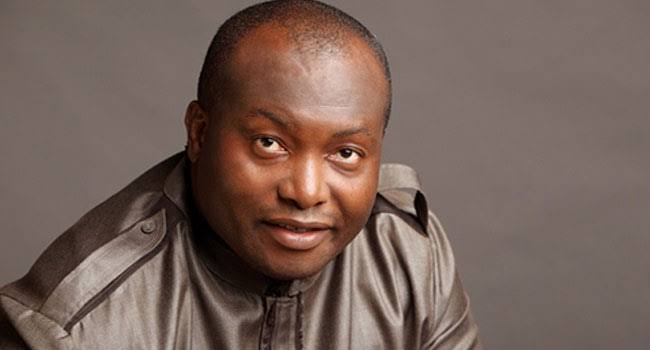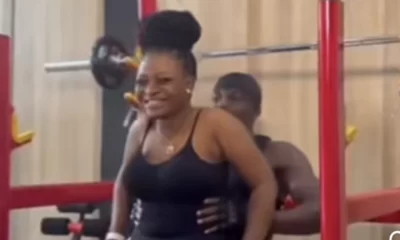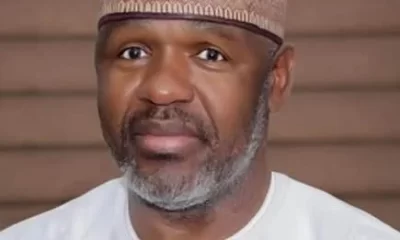Breaking
10 Things To Know If You Want To Stop Using Condoms


There are a few great reasons condoms are such a nightstand staple. They’re our best protection from STIs. They’re ready to use at a moment’s notice. And they don’t involve a trip to the doctor. But after dating for a while, many couples reach a point when their love for condoms starts to wane. “At some point, as people become secure in their relationship, many want to switch to another type of birth control and stop using condoms,” says Larry Swiader, social media director for The National Campaign to Prevent Teen and Unplanned Pregnancy. “And we know that many people are ill-prepared for that moment.”
Are you and your partner considering ditching the condoms? Here are some things to consider before entering the storm without your “rain jacket
Understand That Most STIs Are Not Visible
STIs are extremely common — half of adults will get at least one STI by age 25, and many experts believe that nearly everyone who’s sexually active will get human papillomavirus (HPV). You may remember seeing really freaky pics of STIs in your health class, but truth be told, it’s nearly impossible to tell if someone has an STI just by looking, because most have no signs or symptoms. You are not an STI test kit — just because someone is well-dressed, or you trust him or her completely, or even if you can’t see anything out of the ordinary on his or her genitals, it doesn’t mean that person doesn’t have an STI. “Viruses and bacteria don’t care about how great the person is that you’re dating,” says Leslie Kantor, vice president of education at Planned Parenthood Federation of America. “Testing is the only way to know for sure.”
Know Your STI Screening Basics
Anyone who has had vaginal, oral, or anal sex without a condom (or has shared a needle) is at risk for STIs. And since condoms don’t fully protect against all STIs, even if you have always used condoms, you could still be at risk. Which STIs you should get screened for depends on your sex, your age, and your sexual history. At a minimum, it’s recommended that everyone get tested for HIV at least once (and more often if you’ve had unprotected sex). And if you’re a sexually active woman age 24 or younger, you should get tested annually for chlamydia and gonorrhea. There are many other STIs you may want to get screened for, such as syphilis, trichomoniasis, genital herpes, hepatitis B and C, or HPV. So educate yourself about the options and talk with your healthcare provider about what’s recommended for you. The “educate yourself” part of that statement is important, because not all providers are up to date on what you should be screened for — so it’s best to walk in with some knowledge yourself.
Get the Tests You Need
“Just because someone has been to a medical provider doesn’t mean he or she has been tested for everything. Some tests are routinely done and some are not,” says Kantor. For example, herpes is not routinely tested for, and guys can’t be tested for HPV. The definition of “everything” can vary from provider to provider, which is why it’s important to know exactly which tests you’re getting. It’s also important to make sure you’re getting tested at the right time, because many STIs aren’t immediately detectable after you have unprotected sex — in fact, it can take up to three months for some STIs, such as HIV, to show up on tests. (Other STIs, such as chlamydia, can be detected much sooner.) So be sure to talk with your healthcare provider about the best time to get tested after you’ve had unprotected sex. You might need to repeat some tests to be sure the results are accurate.
Discuss Your Results
You can get tested with your partner, or you can go on your own — it’s up to you. But you and your partner should both get tested for the STIs that make sense for you, and share your results with each other. And the reality is, it may turn out that one or both of you have an STI (remember earlier when we were talking about how common STIs are?). Bacterial STIs, such as chlamydia, can usually be easily cured with simple antibiotics. Viral STIs, such as herpes or HIV, may remain in your body forever, but they can be effectively managed with medication. If you do have a viral STI, it’s up to you and your partner to decide if you want to have sex without a condom; you can take other steps to reduce the risk of transmission. But whatever you decide, it’s important to know the risk you’re taking and make an informed decision.
Be Committed
Before you decide to stop using condoms, it’s a good idea to be in a committed relationship and trust the person you’re with, Swiader says. Whether you’re monogamous or not, you should be clear about what the arrangement is and comfortable with it. If you’re feeling squeamish about bringing up the DTR convo, that could be a sign that you’re not feeling totally comfortable in the relationship. And if that’s true, consider asking yourself: Am I okay having unprotected sex with someone I’m not able to have a relationship conversation with? Although how you choose to have sex is always up to you and your partner, most people have the best sexual experiences when they really trust the person they are having them with. Before you decide to have sex without a condom, ask yourself: Do I trust that my partner cares about my well-being? Do I trust that this person will tell me the truth about STI testing?
Make Sure You’re Doing It For You
Deciding to have sex without a condom is a big decision — so you want to make sure that you’re doing it because YOU want to. When you’re really into someone, it can be tempting to do whatever it takes to make that person happy. But if you don’t look out for your own relationship needs and health, just trying to make your partner happy can backfire and cause you to feel resentful, powerless, and generally unhappy. Remember, someone who cares about you isn’t going to pressure you to do something you’re not comfortable with. And not using a condom at your partner’s urging isn’t going to make your partner feel more connected to you or more into it than he or she already is. Having sex without a condom is taking a risk. And of course all of life involves taking risks, but down the line, the risks you can feel good about are the ones you’ve chosen because you wanted to.
Plan Ahead
If you’ve been relying on condoms as your main source of contraception, then you’ll want to find a new form of contraception before you stop using condoms. This means taking some time to plan ahead, outside of bed. “It’s easier to have non-romantic thoughts — like planning your birth control — at a time when you’re not having sex, which is why we encourage planning so much,” Swiader says. But just because you find another birth control method doesn’t mean there’s no use for condoms. “It’s really best for couples to use both an effective method of birth control and a condom,” Kantor says. “To be really protected from an unplanned pregnancy, it’s best to use dual methods.”
Learn about ALL Your Birth Control Options
There is a wide range of safe, highly effective birth control methods that you can choose from. No one method is the best choice for everyone, so you want to learn about all of your options and decide which will be the best for you. “Most people still move from condoms to the Pill, but a lot of people don’t realize that IUDs and implants are even more effective than the Pill and can be used by teens and young adults even if they haven’t had a baby,” Kantor says. “Both the IUD and implant are 99% effective, and people don’t have to worry about doing something every day.”
Hold Onto Your Horses Trojans
Found a new birth control method? Great! Just know that it can take up to a week for a new method to start working, so you should continue using condoms until your new birth control is fully effective. Kantor warns: “One of the big places that unplanned pregnancy takes place is when people are switching methods.” Know this, and protect yourself by keeping up the condom use until you’re fully in the clear.
You Don’t Have to Ditch
If you’ve gotten to the end of this article and you’re thinking having sex without condoms feels like a little too much for you, don’t sweat it. You don’t have to stop using them if you don’t want to! Some people believe that using condoms is a barrier to intimacy, or a sign that you don’t trust your partner, “but really you can look at it in a different way,” Kantor says. “Using a condom means caring about the health of your partner and yourself.” And with all the new styles out there, condoms can actually spice up your sex life. There are a ton of ways to feel more intimate and connected with your partner. There are also a ton of ways to have better sex. If those are the true goals you’re after, then ditching condoms does not have to be your solution.
Breaking
Senator Ifeanyi Ubah dies at 52

The Senator representing Anambra South in the National Assembly, Ifeanyi Ubah, is dead.
Ubah, who was the Chief Executive Officer of Capital Oil, was said to have died in a hotel in London, the United Kingdom, on Saturday.
He would have been 53 on September 3.
Senate spokesperson, Yemi Adaramodu, confirmed Ubah’s death to our correspondent on Saturday.
He said, “It’s confirmed, but I am sending an official statement soon.”
Ubah, who was re-elected into the 10th Senate under the Young Peoples Party, had last year defected to the All Progressive Congress.
In September 2022, Ubah escaped assassination when he was attacked by gunmen on his way to Nnewi in Enugwu-Ukwu in Anambra State.
Breaking
JUST IN: Edo state Assembly impeaches Deputy Governor Shaibu

The Edo State House of Assembly, on Monday, impeached the state’s Deputy governor, Comrade Philip Shaibu.
The impeachment followed the adoption of the report of the seven-man investigative panel set up by the Assembly to probe allegations of misconduct against Shaibu.
Breaking
JUST IN: Olubadan of Ibadanland, Oba Lekan Balogun joins ancestors at 81

The Olubadan of Ibadanland, Oba Lekan Balogun has joined his ancestors after a brief illness.
He joined his ancestors at the age of 81.
It was gathered that the late monarch was taken to the hospital Wednesday morning having stayed indoor throughout Tuesday on account of slight malaria fever, though, he was hail and hearty on Monday during which he personally received few guests that paid him congratulatory visits on his second year anniversary on that day.
Making this announcement was the Baba-Kekere Olubadan and his younger brother, Dr Kola Balogun in a statement by the Personal Assistant (Media) to the late monarch, Oladele Ogunsola.
According to the statement, Dr. Balogun disclosed that Oba Balogun would be buried at his Aliiwo ancestral home by 4.00pm on Friday according to Islamic rites just as he said that the State Governor Seyi Makinde, though already verbally informed, would be formally notified early in the morning.
The late Olubadan was the first most educated to have emerged as Ibadan monarch, a British trained P.hd holder, a former university lecturer, former member of management staff of Shell British Petroleum, former gubernatorial candidate of the defunct Nigeria People’s Party, NPP, former Senator and a successful business man.
His last official outing was the Olubadan Advisory Council’s meeting which he presided over last Saturday where the decision to derobed Mogaji Akinsola, Olawale Oladoja was taken.
He however, on Tuesday instructed the Ekerin Olubadan, Oba Hamidu Ajibade to midwife a small committee to deliberate on last Friday’s decision on what should be the position of Ibadan Zone in the proposed newly reconstituted Oyo State Council of Obas and Chiefs.
The decision of the small committee was earlier on Thursday ratified by the Olubadan Advisory Council at a meeting presided over by Otun Olubadan and the former governor of Oyo State, High Chief Rashidi Ladoja and was to be taken to the late Oba Balogun for his signature Friday morning so as to meet the deadline for submission to the state Commissioner for Local Government and Chieftaincy Matters later in the day.
The late Olubadan is survived by wives, children and grandchildren.
Announcing the passage of the monarch, Governor Makinde, in a statement, stated that Olubadan, who joined his ancestors late Thursday evening at the University College Hospital, UCH, Ibadan, described him as an epitome of royal excellence and a great achiever, who made great marks on Ibadanland in just a little over two years of his reign.
He expressed his condolences to the Olubadan-in-Council, the Oyo State Traditional Council and the people of Ibadanland and Oyo State, praying to God to grant repose to the soul of the deceased monarch.
Makinde said: “With total submission to the will of God, I announce the passing unto glory of our father, His Imperial Majesty, Oba Dr. Mohood Lekan Balogun, Alli Okunmade II, the 42nd Olubadan of Ibadanland.
“A mighty Iroko has fallen; Oba Dr. Balogun has joined the ancestors.
“In Kabiyesi, Ibadanland had a cosmopolitan and well-experienced Olubadan, who made indelible marks on the sands of history and achieved greatly within a short while.
“On behalf of the Government and good People of Oyo State, I condole with the immediate family of the Oba Dr. Balogun, the Olubadan-in-Council, the Oyo State Traditional Council and the people of Ibadanland.
“It is my prayer that God grants repose to the soul of our late monarch.”
-

 News1 week ago
News1 week agoNaseni’s Executive Vice Chairman, Khalil Suleiman Halilu, Named 2024 Winner Of Daily Global Newspaper Conference Series Award For Science, Technology, Innovation, And Infrastructure
-

 Relationships1 week ago
Relationships1 week agoFour dating tips for single mum
-

 Relationships6 days ago
Relationships6 days ago‘I wish I met you before the wrong person’ – says Portable’s baby mama, Honey Berry, as she flaunts new lover
-

 Politics1 week ago
Politics1 week agoIbrahim Kashim resigns as Bauchi SSG
-

 Business5 days ago
Business5 days agoPoS operators increase withdrawal charges, blame electronic levy, cash scarcity
-

 Entertainment1 week ago
Entertainment1 week agoApostle Femi Lazarus, others top Spotify most streamed podcasts in Nigeria, Kenya, South Africa
-

 News1 week ago
News1 week agoLagos state government shuts Lord’s Chosen Church, businesses across Lekki, VI, others over noise, environmental infractions
-

 Entertainment6 days ago
Entertainment6 days agoBovi speaks against beating children, reveals why his family relocated to UK


















